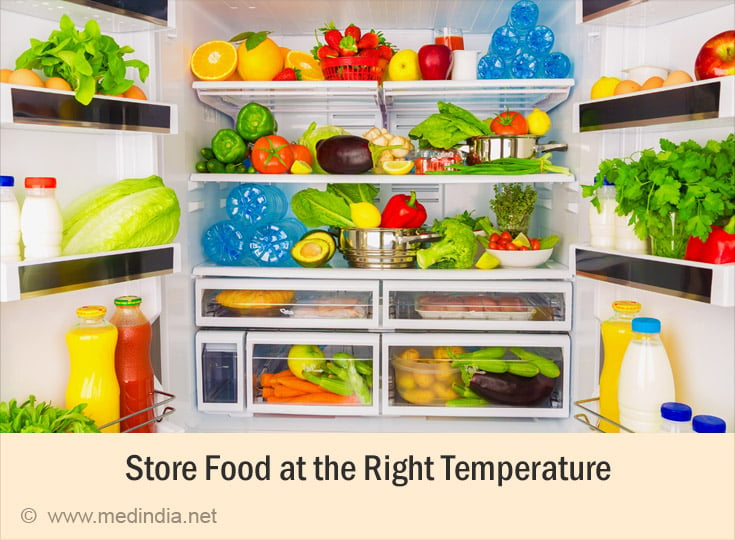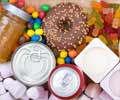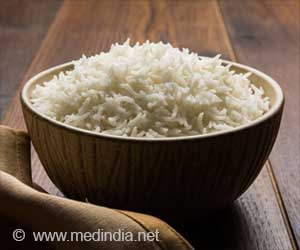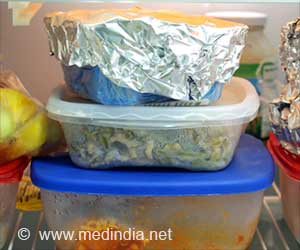- Food Storage Guidelines For Consumers - (https://www.ksre.k-state.edu/humannutrition/foodstorage-documents/Virginia348-960_pdf.pdf)
- Recent developments in freezing of fruits and vegetables: Striving for controlled ice nucleation and crystallization with enhanced freezing rates - (https://ift.onlinelibrary.wiley.com/doi/full/10.1111/1750-3841.16810)
- Food-Drying Applications for Plant Products: A Comparative Analysis - (https://www.mdpi.com/2304-8158/12/20/3739)
- Preservation and fermentation: past, present and future - (https://pubmed.ncbi.nlm.nih.gov/12382680/)
- Potentials of Natural Preservatives to Enhance Food Safety and Shelf Life: A Review - (https://www.ncbi.nlm.nih.gov/pmc/articles/PMC9525789/)
About
Monsoon season brings a refreshing change in weather but is challenging for food storage and preservation. The high humidity and fluctuating temperatures create an ideal environment for bacteria, fungi, and other pathogens to thrive, leading to a higher risk of food spoilage. Preventing food from spoiling not only saves money but also ensures that you and your family stay healthy.
Did You Know?
During the monsoon season, high humidity levels can accelerate food spoilage, making it essential to store perishable items in airtight containers and maintain proper refrigerator temperatures to extend their shelf life.#foodstorage #monsoonseason
Top 10 Ways to Prevent Food Spoilage
Here are ten effective ways to keep food from spoiling, especially during the monsoon season.
1. Maintain Proper Food Hygiene
One of the most critical steps to prevent food spoilage is maintaining proper hygiene. Always wash your hands thoroughly with soap and water before handling food. Ensure kitchen surfaces, utensils, and cutting boards are cleaned regularly to avoid cross-contamination. Using separate cutting boards for vegetables and raw meats can further reduce the risk of contamination.
2. Store Food at the Right Temperature
Proper storage is essential to prevent food from spoiling. Perishable items such as meat, dairy products and leftovers should be stored in the refrigerator at or below 40°F (4°C)(1✔ ✔Trusted Source
Food Storage Guidelines For Consumers
Go to source). Ensure your refrigerator is set to the correct temperature and avoid overloading it, as this can restrict air circulation and lead to uneven cooling.

3. Use Airtight Containers
Storing food in airtight containers can significantly extend its shelf life. These containers prevent moisture and air from entering, which can cause food to spoil more quickly. Use airtight containers for leftovers, snacks, and dry goods such as flour, sugar, and rice. Additionally, resealable plastic bags can be useful for storing smaller items and preventing freezer burn.
4. Keep Your Refrigerator Organized
An organized refrigerator can help you keep track of food items and ensure they are consumed before they spoil. Store older items at the front and new items at the back to follow the "first in, first out" principle. Use clear containers or label your food to make it easier to identify and keep track of expiration dates.
5. Blanch and Freeze Vegetables
Blanching and freezing vegetables is an effective way to preserve their freshness and nutrients(2✔ ✔Trusted Source
Recent developments in freezing of fruits and vegetables: Striving for controlled ice nucleation and crystallization with enhanced freezing rates
Go to source). Blanching involves briefly boiling vegetables and then plunging them into ice water to stop the cooking process. This method helps maintain the color, flavor, and texture of vegetables while killing any bacteria present. Once blanched, vegetables can be frozen and stored for several months.
6. Dry and Dehydrate Foods
Drying and dehydrating foods is an excellent method for preserving fruits, vegetables, and herbs. Removing moisture from food prevents the growth of bacteria, yeast, and molds(3✔ ✔Trusted Source
Food-Drying Applications for Plant Products: A Comparative Analysis
Go to source). You can use a food dehydrator or oven set to a low temperature to dry foods. Store dried foods in airtight containers in a cool, dark place to extend their shelf life.
7. Pickling and Fermentation
Pickling and fermentation are traditional methods of food preservation that add unique flavors to foods while extending their shelf life. Pickling involves preserving food in a solution of vinegar, salt, and spices, while fermentation relies on beneficial bacteria to produce acids that prevent spoilage. These methods can be used for a variety of vegetables, fruits, and even dairy products like yogurt and cheese(4✔ ✔Trusted Source
Preservation and fermentation: past, present and future
Go to source).
8. Vacuum Sealing
Vacuum sealing is a highly effective way to preserve food by removing air from the packaging. This process significantly slows down the growth of bacteria and mold, extending the shelf life of perishable items. Vacuum-sealed foods can be stored in the refrigerator, freezer, or pantry, depending on the type of food.
9. Use Natural Preservatives
Natural preservatives like lemon juice, vinegar, and salt can help prevent food spoilage(5✔ ✔Trusted Source
Potentials of Natural Preservatives to Enhance Food Safety and Shelf Life: A Review
Go to source). Lemon juice is acidic and can be used to preserve fruits and vegetables by preventing oxidation and bacterial growth. Vinegar, with its high acidity, is excellent for pickling and preserving foods. Salt is a traditional preservative that draws moisture out of foods, inhibiting the growth of bacteria and mold. Use these natural preservatives in marinades, dressings, and preservation methods to extend the shelf life of your food.
10. Stay Informed about Food Safety Guidelines
Keeping up-to-date with food safety guidelines can help you prevent food spoilage and ensure that you are following best practices. Government agencies and health organizations regularly issue guidelines and alerts about food safety. Subscribing to newsletters or following these organizations on social media can keep you informed about food recalls, safety tips, and best practices for food storage and handling.
Preventing food spoilage requires a combination of proper storage techniques, hygiene practices, and the use of preservation methods. By maintaining proper food hygiene, storing food at the correct temperature, using airtight containers, and keeping your refrigerator organized, you can significantly reduce the risk of food spoilage. Additionally, blanching and freezing vegetables, drying and dehydrating foods, pickling and fermentation, vacuum sealing, and using natural preservatives are effective ways to extend the shelf life of various food items.
Staying informed about food safety guidelines and best practices is also crucial in ensuring that you and your family remain healthy, especially during the monsoon season. By implementing these ten effective ways to keep food from spoiling, you can enjoy fresh and safe meals while minimizing waste and saving money.










